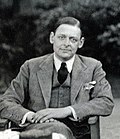Welcome to the Poetry Portal


Poetry (a term derived from the Greek word poiesis, "making"), also called verse, is a form of literature that uses aesthetic and often rhythmic qualities of language − such as phonaesthetics, sound symbolism, and metre − to evoke meanings in addition to, or in place of, a prosaic ostensible meaning. A poem is a literary composition, written by a poet, using this principle.
Poetry has a long and varied history, evolving differentially across the globe. It dates back at least to prehistoric times with hunting poetry in Africa and to panegyric and elegiac court poetry of the empires of the Nile, Niger, and Volta River valleys. Some of the earliest written poetry in Africa occurs among the Pyramid Texts written during the 25th century BCE. The earliest surviving Western Asian epic poem, the Epic of Gilgamesh, was written in the Sumerian language.
Early poems in the Eurasian continent evolved from folk songs such as the Chinese Shijing as well as from religious hymns (the Sanskrit Rigveda, the Zoroastrian Gathas, the Hurrian songs, and the Hebrew Psalms); or from a need to retell oral epics, as with the Egyptian Story of Sinuhe, Indian epic poetry, and the Homeric epics, the Iliad and the Odyssey. (Full article...)
Selected article

Four Quartets is a set of four poems written by T. S. Eliot that were published individually over a six-year period. The first poem, Burnt Norton, was written and published with a collection of his early works following the production of Eliot's play Murder in the Cathedral. After a few years, Eliot composed the other three poems, East Coker, The Dry Salvages, and Little Gidding, which were written during World War II and the air-raids on Great Britain. The poems were not collected until Eliot's New York publisher printed them together in 1943. They were first published as a series in Great Britain in 1944 towards the end of Eliot's poetic career.
Four Quartets are four interlinked meditations with the common theme being man's relationship with time, the universe, and the divine. In describing his understanding of the divine within the poems, Eliot blends his Anglo-Catholicism with mystical, philosophical and poetic works from both Eastern and Western religious and cultural traditions, with references to the Bhagavad-Gita and the Pre-Socratics as well as St. John of the Cross and Julian of Norwich.
Although many critics find the Four Quartets to be Eliot's great last work, some of Eliot's contemporary critics, including George Orwell, were dissatisfied with Eliot's overt religiosity. Later critics disagreed with Orwell's claims about the poems and argued instead that the religious themes made the poem stronger. Overall, reviews of the poem within Great Britain were favourable while reviews in the United States were split between those who liked Eliot's later style and others who felt he had abandoned positive aspects of his earlier poetry. (Full article...)
Selected image
Poetry WikiProject

Selected biography
Maya Angelou (/ˈmaɪ.ə ˈændʒəloʊ/; born Marguerite Annie Johnson; April 4, 1928 – May 28, 2014) was an African-American author, poet, dancer, actress, and singer. She published seven autobiographies, three books of essays, and several books of poetry, and was credited with a list of plays, movies, and television shows spanning more than 50 years. She received dozens of awards and over fifty honorary degrees. Angelou is best known for her series of seven autobiographies, which focus on her childhood and early adult experiences. The first, I Know Why the Caged Bird Sings (1969), tells of her life up to the age of seventeen and brought her international recognition and acclaim.
She became a poet and writer after a series of occupations as a young adult, including fry cook, prostitute, nightclub dancer and performer, cast member of the opera Porgy and Bess, coordinator for the Southern Christian Leadership Conference, and journalist in Egypt and Ghana during the decolonization of Africa. She was an actor, writer, director, and producer of plays, movies, and public television programs. From 1982, she taught at Wake Forest University in Winston-Salem, North Carolina, where she held the first lifetime Reynolds Professorship of American Studies. She was active in the Civil Rights Movement, and worked with Martin Luther King Jr. and Malcolm X. Beginning in the 1990s, she made around 80 appearances a year on the lecture circuit, something she continued into her eighties. In 1993, Angelou recited her poem "On the Pulse of Morning" (1993) at President Bill Clinton's inauguration, making her the first poet to make an inaugural recitation since Robert Frost at President John F. Kennedy's inauguration in 1961. (Full article...)
Did you know (auto-generated) -

- ... that Burton Raffel called Arthur Cooper's translation of a poem by Du Fu "exceedingly lame"?
- ... that French West African poet David Diop was among 63 people killed when Air France Flight 343 crashed in 1960?
- ... that Michael Huber's translation of Salomon Gessner's works into French made Gessner the best-known German-language poet in Europe before Goethe?
- ... that Canadian poets Milton Acorn, Margaret Atwood, and Gwendolyn MacEwen performed at the Bohemian Embassy on the same bill as burlesque dancer Libby Jones?
- ... that Isabella Correa was one of the few Jewish women poets active in the Netherlands before the 19th century?
- ... that L. J. Potts translated the Poetics as Aristotle on the Art of Fiction, a title accused of "[narrowing] dangerously the wide gap between Aristotle and ourselves", but later called "creative genius"?
Selected poem
| Adonais verses 1-4 by Percy Bysshe Shelley |
|---|
|
1 |
Related portals
Topics
Recognized content
Categories
Associated Wikimedia
The following Wikimedia Foundation sister projects provide more on this subject:
-
Commons
Free media repository -
Wikibooks
Free textbooks and manuals -
Wikidata
Free knowledge base -
Wikinews
Free-content news -
Wikiquote
Collection of quotations -
Wikisource
Free-content library -
Wikiversity
Free learning tools -
Wiktionary
Dictionary and thesaurus





















